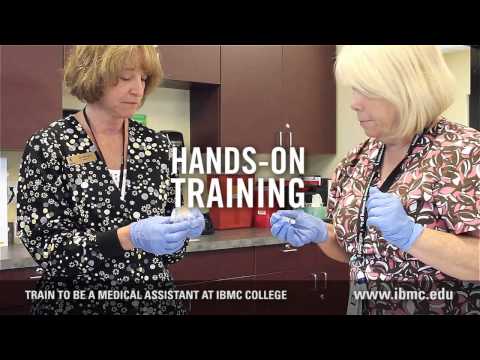Medical Assistant Requirements: What You Need to Know
Contents [show]
Medical assistants are in high demand! Learn about the medical assistant requirements and what you need to know to enter this rewarding career.
Checkout this video:
What is a medical assistant?
A medical assistant is a professional who provides clerical and clinical support to healthcare providers. They work in both outpatient and inpatient settings, such as hospitals, clinics, and physician’s offices.
Medical assistants perform a variety of administrative and clinical tasks to keep healthcare facilities running smoothly. Some of their duties include scheduling appointments, taking and recording patient medical histories and vital signs, answering patient questions, preparing patients for examination, and collecting and preparing laboratory specimens.
Medical assistants must be able to multitask and stay organized in fast-paced environments. They must also be able to effectively communicate with patients, families, physicians, and other members of the healthcare team.
Some Medical assistants are certified or registered by professional organizations such as the American Association of Medical Assistants (AAMA) or the National Healthcare Association (NHA). Although certification is not required for all medical assistants, it may give them an advantage when seeking employment.
What are the requirements to become a medical assistant?
There are few formal requirements to become a medical assistant. Many Medical Assistants have a postsecondary education such as a certificate, while others have completed an Associate’s Degree program. Some states may require medical assistants to pass a certification exam, however this is not always the case.
The most important requirements for becoming a medical assistant are having the proper skills and personality traits. Medical assistants must be able to effectively communicate with patients and other healthcare professionals, have strong organizational skills, and be detail oriented. They must also be able to handle sensitive information with discretion and maintain confidentiality.
What are the duties of a medical assistant?
A medical assistant is a trained professional who provides administrative and clinical support to physicians, nurses and other health care providers. The duties of a medical assistant are numerous and varied, and depend on the specific needs of the health care facility where they work. However, there are some common duties that all medical assistants perform.
Medical assistants are responsible for performing administrative tasks such as scheduling appointments, maintaining medical records and billing insurance companies. They also handle clinical tasks such as taking patient histories, performing physical exams, assisting with diagnostic testing and administering injections. In addition, medical assistants may also be responsible for educating patients about their health condition, providing referrals to other health care providers and answering patient questions.
What are the benefits of becoming a medical assistant?
The field of medicine is an ever-changing and challenging one, which is why medical assistants are in such high demand. These professionals provide much-needed support to doctors and other medical staff, helping to ensure that patient care is of the highest possible quality. If you’re thinking of becoming a medical assistant, you’re likely wondering what the requirements are. Here’s what you need to know.
Most medical assistants have at least a high school diploma, although some choose to pursue further education by completing a formal training program at a vocational school or community college. Formal training programs typically last between six and twelve months and cover topics such as human anatomy, Medical Terminology and basic office procedures. While not required, completion of a formal training program can give you a leg up in the job market.
In addition to formal education, most employers will also require that you have basic computer skills and be able to type at least 40 words per minute. As technology increasingly plays a role in all aspects of healthcare, being comfortable with computers is essential for success in this field.
Medical assistants must have excellent communication skills and be able to work well under pressure. They must also be detail-oriented and able to maintain confidentiality with sensitive patient information.
What are the challenges of being a medical assistant?
While there are many benefits to being a medical assistant, there are also some challenges that come with the job. Medical assistants must be able to handle a variety of tasks, often with little supervision. They must be able to work well under pressure and be comfortable working with patients who may be in pain or suffering from a chronic illness.
Another challenge medical assistants face is keeping up with the ever-changing medical field. As new treatments and technologies are developed, medical assistants must be prepared to learn new skills and procedures. They must also be able to adapt to the changing needs of their patients.
Despite the challenges, being a medical assistant can be a rewarding experience. It is a career that offers opportunities for growth and development, and it provides a chance to make a difference in the lives of others.
What is the job outlook for medical assistants?
The job outlook for medical assistants is very good. The Bureau of Labor Statistics projects that employment of medical assistants will grow 23 percent from 2019 to 2029, much faster than the average for all occupations.1 With an aging population and advances in medical technology, there will be an increased need for diagnostic and therapeutic services.
In addition, as physicians increasingly take on more administrative duties, they will need more support from medical assistants. Medical assistants perform many routine tasks and procedures under the direction of licensed health care providers. Although many tasks may be routine, they are crucial to the smooth operation of a medical facility and the well-being of patients.
What are the salary expectations for medical assistants?
The Bureau of Labor Statistics reports that the median annual salary for medical assistants was $34,800 in May 2016, with the top 10 percent earning more than $49,380. Salaries vary by employer, geographic region and experience.
What are the career paths for medical assistants?
Medical assistants can find employment in a variety of settings, such as hospitals, private physician practices, clinics, and other healthcare facilities. There are many different career paths that medical assistants can take, depending on their interests and goals.
Some medical assistants choose to specialize in a particular area of medicine, such as pediatrics, geriatrics, or obstetrics/gynecology. Others may choose to work in a specific type of healthcare setting, such as a hospital or a private physician practice. Additionally, some medical assistants may choose to pursue administrative roles within healthcare organizations.
No matter what career path medical assistants choose to pursue, they need to possess certain skills and knowledge in order to be successful. Medical assistants must be able to effectively communicate with patients, doctors, and other members of the healthcare team. They must also have strong organizational skills and be able to keep track of important medical information. In addition, medical assistants must be detail-oriented and have the ability to handle multiple tasks simultaneously.
What are the continuing education options for medical assistants?
There are a few different continuing education options for medical assistants. One option is to take classes through a community college or other type of institution. Another option is to take online courses. There are also some certification programs that offer continuing education for medical assistants.
What are the resources for medical assistants?
The majority of medical assistants have at least a high school diploma, although some have postsecondary education, and most states do not require certification for people entering the profession. However, many employers prefer or require certification, and some states have certification requirements for certain tasks that medical assistants perform, such as administering injections.
Medical assistants can be trained on the job or in formal medical assistant programs. Formal programs typically last 1 year or less and lead to a certificate or diploma. Some community colleges offer 2-year associate degree programs in medical assisting. A small number of 4-year colleges and universities offer bachelor’s degree programs in health sciences with a concentration in medical assisting.







